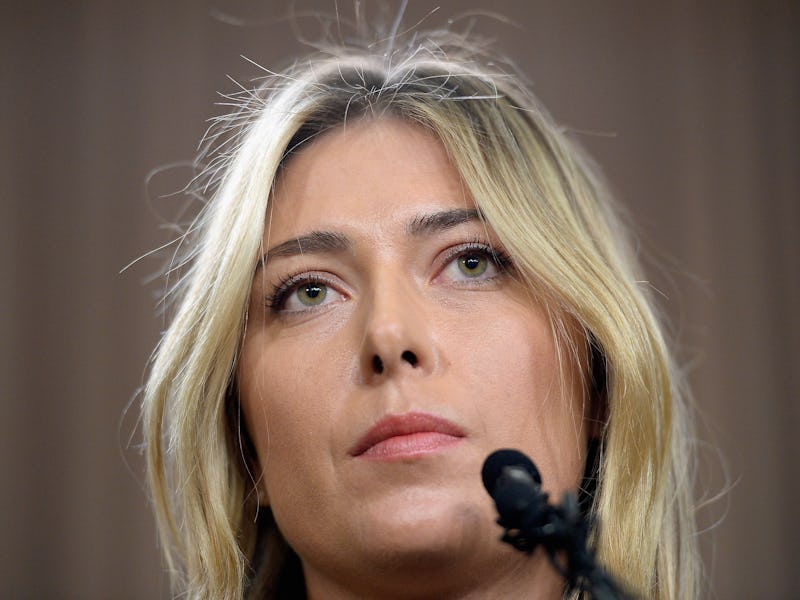Maria Sharapova's Meldonium Case Is a Weird Echo of the Cold War
As debate around what the drug actually does continues, one thing seems clear: She should have known it was banned.

On Monday, five-time Grand Slam champion Maria Sharapova announced that she had failed a doping test administered in January. She tested positive for meldonium, which is a new addition to the World Anti-Doping Agency’s list of banned substances. Sharapova told reporters she had been prescribed the drug — also known as mildronate — by a family doctor, and had been taking it for the past 10 years.
There are quite a few questions that are still raised by her explanation. Is meldonium the type of clinical drug you would use over a 10-year period? Can you really consider it a performance-enhancing drug? Sharapova’s camp is claiming her use was occasional over the past decade though her lawyer, John Haggerty, wouldn’t divulge specifics about her treatment.
There is scant research available exploring the effects of meldonium on athletic performance. One of the only studies cited found that the drug can lead to “improved rehabilitation after exercise, protection against stress, and enhanced activations of central nervous system functions.” More illustrative is the fact that Meldonium was administered to Soviet soldiers in the 1980s. In 2009, the drug’s inventor Ivars Kalvins told the Latvian newspaper Diena that the drug helped individuals deal with high altitudes and oxygen deprivation. “If they have to run 20 kilometers with all the gear, at the end they would get ischemia (a blood circulation condition),” he explained. Kalvins has also claimed that taking meldonium isn’t doping and that conflating the drug with performance enhancing drugs is foolish. One Russian Olympian is on the record saying the drug is similar to vitamin C.
Maria Sharapova at the 2016 Australian Open.
The answers to both questions suggest that meldonium, like many drugs, has a wide-range of uses — clinical and recreational, life-saving and non-essential. Grindeks itself seems to cover all bases (and its own ass) by describing it as a panacea for nebulous complaints like mental distress.
That said, the idea that Sharapova didn’t know meldonium could help improve her game is pretty dubious. She might very well have been using the drug for legitimate medical purposes (she said her reasons for taking the drug were related to irregular EKG, a family history of diabetes, and magnesium deficiency). But a decade’s worth of use, right as her professional career began, should raise a few eyebrows. This is an ischemic heart drug designed for very sick patients. Sharapova doesn’t seem to be — and hasn’t claimed to be — profoundly ill.
Furthermore, it looks like she had to ignore not one, but five different notifications in order to have missed that meldonium was being added to WADA’s prohibited list. For Sharapova to have unwittingly committed an error this big is a pretty big stretch of the imagination. It’s possible, but it would be wise for people to approach her story with a healthy degree of skepticism before buying into it.